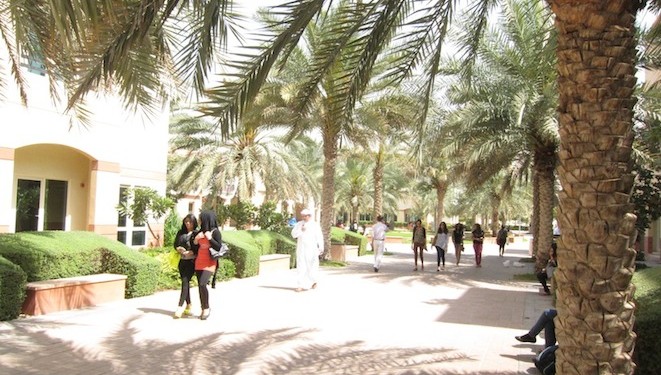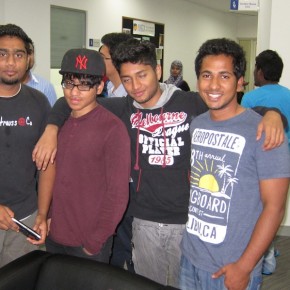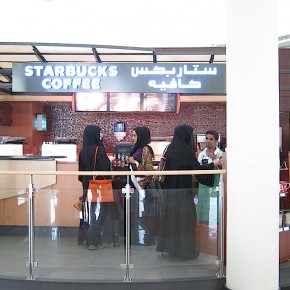“Where are you from?” I ask one of the many young Asian men populating the sparkling campus of Amity University, Dubai, where I am on a tour of the self-styled premier destination for higher education in the region – Dubai International Academic City (DIAC).
News and business analysis for Professionals in International Education
Have some pie!
What is Dubai’s draw? Commerce, safety and ease of access…

“India,” San tells me – informing me he is 20 years old and studying BBA, a Bachelor’s in Business Administration.
“How long have you been in Dubai?” I ask – and his answer is indicative of one reason for Dubai’s development as the international education hub it intends to be. “Fifteen years,” he tells me. “But I’m not Emirati, because I’ll never get an Emirati passport.”
San is essentially a local, raised in the Middle Eastern melting pot that is the UAE – he is Indian but also an international citizen of Dubai. He intends to join his father in the family business of oil exploration technology after his studies, and it seems many of his course mates will also join Dubai-based family firms upon graduation.
The UAE and particularly Dubai has attracted millions of migrants (many Asian) who saw their future in the commercial Mecca of the Middle East. For their progeny to receive an international education here before moving into business is a logical leap in a country that is 91% migrant and more international than most.
DIAC has boomed, accordingly, since its set-up in 2007 by TECOM Investments, which owns and operates a number of business parks catering to different sectors: education (it also operates the precursor to DIAC, Dubai Knowledge Village); ICT; media; sciences; and manufacturing & logistics.
According to Leigh Ann Jones-Khosla, Director of Business Development at DIAC, the campus is currently educating one-third of the 40-45,000 high school students who graduate from the UAE each year.
At present, 76% of all students at DIAC are from the UAE and 24% are international, and yet its local intake is highly international too. It is also an HE “free zone”, home to foreign-owned campuses who either rent premises from DIAC or lease land and build their own campus, as well as paying an annual licence fee of 15,000 Dirhams (UK£2,700).
They number 26 and hail from 11 countries. Many are well known, such as University of Wollongong in Australia, Heriott Watt University in the UK, India-headquartered Amity University, Michigan State University in the USA and global business school, SP Jain (which incidentally recruits the highest proportion of its student body from overseas – 76%).
With “100% foreign ownership; 100% tax-free operations; 100% repatriation of profits and effortless visa and licensing issuance procedures for students, faculty and staff”, DIAC can offer sound commercial motivations for universities keen to venture into the Middle East and recruit students from a new regional base.
“We get express visas for our students within three days”
And with domestic and many Asian and African students interested in pursuing privately-funded higher education in the UAE – 65% of UAE residents would consider a private education, reports Jones-Khosla (based on a Parthenon Group report), while 20% of Emirati students at DIAC are government-sponsored – there seems to be safe prospects in terms of demand.
Jones-Khosla cites Manipal University from India as a success story. Opening in 2003 in Dubai Knowledge Village and the first institution to move over to DIAC when it opened in 2007, Manipal has gone from teaching 63 students across four programmes in 2003, to 2,000 students across 25 programmes.
Amity University Dubai, another successful tertiary export out of India, has big ambitions for growth. Narayanan Ramachandran, Pro Vice Chancellor, tells me that the institution is moving to a larger campus to accommodate its intake, which is expected to rise from 400 students (in its second year of recruitment) to “not less than 5,000” in the next five years.
“Everyone is fascinated by the city of gold,” says Mariam Shaikh, Assistant Vice President for Marketing and Recruitment at Amity, when asked what attracts international students to study here. She cites its safety, easy visa access and position as an economic hub as central attractions.
“Visas play a significant role – we get express visas for our students within three days and regular standard visas within 10 days,” she adds. [more>>]
Still looking? Find by category:





3 Responses to What is Dubai’s draw? Commerce, safety and ease of access…